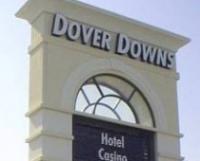 In December 2010, POLITICO reported that Senate Majority Leader Harry Reid (D-NV) was trying to add a bill legalizing online poker to a bipartisan tax cut package negotiated between President Obama and Congressional Republicans. Reid had just won a bitterly fought, well-financed (total expenditures on both sides totaled $41 million) campaign against Tea Party candidate Sharron Angle, with significant cash from casino operators and employees helping to inflate his war chest. Said the website of Reid’s casino-friendly move:
In December 2010, POLITICO reported that Senate Majority Leader Harry Reid (D-NV) was trying to add a bill legalizing online poker to a bipartisan tax cut package negotiated between President Obama and Congressional Republicans. Reid had just won a bitterly fought, well-financed (total expenditures on both sides totaled $41 million) campaign against Tea Party candidate Sharron Angle, with significant cash from casino operators and employees helping to inflate his war chest. Said the website of Reid’s casino-friendly move:
“The House Republicans will go crazy if this is in the bill,” said one senior congressional aide, declaring it “a total, 100 percent payback” for the support Reid received from gambling interests. The aide asserted that lobbyists for the Las Vegas-based casino operator Harrah’s, now known as Caesars Entertainment Corp., even helped write the legislation. “You could call him ‘Harrah Reid’ at this point,” the aide quipped.
According to POLITICO, casino industry support for the Reid campaign was substantial – hundreds of thousands of dollars raised from casinos and their employees for the campaign and sympathetic political action committees (PACs), plus efforts to get employees to the polls. Given that gambling provides one-sixth of jobs in the state of Nevada, according to the Wall Street Journal, the industry’s efforts on behalf of Reid were likely a key factor in his five-point win over the Republican Angle. And it seemed hardly coincidental that, just weeks after his win, Reid pushed legislation that was at least strongly supported – if not, as alleged, written by – major casino operators.
Of course, Reid’s bill went nowhere, and it was not until last month’s DOJ opinion that American online poker became a legal possibility. That begs the question: if international gaming behemoths such as Wynn, MGM, and Caesars can provide key support to re-elect the Senate Majority Leader, who shares his party with the sitting President, and still see their key legislative priority wind up dead on arrival, what hope does the rest of the industry have?
* * *
Dover Downs Gaming and Entertainment (stock symbol DDE) is the owner of the Dover Downs Raceway, which now boasts a casino and hotel in addition to its legacy harness racing track. At first glance, the small-cap stock (total market capitalization is $75 million) looks like an interesting potential buy. The company has generated nearly $40 million in levered cash flow (defined as free cash flow less interest on debt) over the past three years, with the fourth quarter still yet to come. In addition, the stock trades at just two-thirds of its book value (the total value of its assets, less the total amount of debt and other liabilities). Finally, DDE pays out 12 cents per share in dividends annually, giving a yield of over 5% at Friday’s close of $2.38. And yet, over the past twelve months, DDE stock has lost 35% of its value.
Saturation of the gambling market in the Northeast is, of course, a key driver behind DDE’s struggles. The market is (theoretically) a forward-looking mechanism, and it’s difficult to project anything but hard times ahead for Delaware casinos. Pennsylvania legalized table gaming in 2010, and two such casinos now sit outside Philadelphia, not far across the state line. A 4,750-machine facility is projected to open at Arundel Mills in Maryland this summer, West Virginia’s Charles Town has added table games and the already-struggling Atlantic City market will see the $2.4 billion Revel come online this spring.
But another key problem for Dover Downs is that the tax agreements into which it entered with the state are onerous at best. The Video Lottery Advisory Council, which has been headed by Dover Downs CEO Ed Sutor since 2006, submits an annual report to the Delaware legislature each year on the condition of the state’s gambling industry. (You can see the full text here.) Among the highlights (or lowlights):
- Slot revenues have declined for 15 consecutive quarters since Pennsylvania’s first casino opened in the beginning of 2007. According figures provided by the council to the Dover Post, revenue for 2011 was down 13.3% year-over-year.
- Table games – added in Delaware in early 2010 – have added no profit to the bottom line for casino operators. Revenue “is entirely consumed by gaming taxes, license fees, and payroll expenses.”
- The table gaming tax rate in Delaware stands at 34%, more than double the 14% rate in neighboring Pennsylvania.
- The three casinos are responsible for nearly $11 million combined annually in licensing fees. Dover Downs’ share of those fees would thus work out to about $3.6 million. As a point of reference, the company’s entire operations – including the hotel, restaurants, and the racetrack – earned $3.2 million in income in the first nine months of 2011.
The council recommended the elimination of those licensing fees, a reduction in the table game tax rate to 14% (matching the rate in neighboring Pennsylvania), and a change in the slot tax structure to a tiered structure whereby the casinos pay higher taxes on higher marginal level of profits. Sutor told the Post that without changes in the tax structure, the state’s casinos would have to cut back on marketing and personnel, repeating a layoff threat he made publicly back in June.
In response, Brian Selander, a spokesperson for Delaware Governor Jack Markell, told the Post (emphasis mine):
It’s not surprising that they would ask to have its [sic] financial obligations reduced…We are interested in having a conversation on a thoughtful approach to enhance their competitive advantage, but we do not have the resources or the inclination for a large-scale taxpayer handout.
As anyone who follows politics knows, this is flack-speak for “No @#$@! way.” And what can Dover Downs – and the state’s other casinos – do in response? Can the company really face the public backlash caused by laying off workers in the midst of a difficult economy? Any cuts in the marketing budget will be counterproductive, particularly considering the intense competition from in- and out-of-state rivals. In addition, the strong cash flow noted earlier has come largely on the back of significantly lowered capital expenditures. Granted, the completion of hotel and casino expansion projects in 2007 and 2008 led to sharply higher budgets (some $90 million total). But the company has spent less than $1.5 million on plant, property, and equipment in the first three quarters of 2011, leaving shareholders to wonder if potentially needed projects and upgrades have been put on hold due to cash flow concerns.
What is particularly impressive/amazing/appalling is that, between licensing fees and gaming taxes, Dover Downs in the first nine months of 2011 created somewhere in the range of ten times more profits for the state of Delaware than for its shareholders. If the company can get some kind of tax relief – even a small compromise on the licensing fee alone would sharply increase net revenue – DDE stock is a screaming buy. But if Harry Reid can’t do it, what chance does Ed Sutor have?
* * *
The Genting Group (which has 5 subsidiaries, traded on 3 public stock exchanges in Asia) announced plans last week to create a casino megaplex at the Aqueduct Racetrack outside of New York City. The existing racino there opened on October 28, with some 5,000 slots and electronic table games; future plans would include the world’s largest convention center, shopping and restaurants. Genting’s 5 subsidiaries have a combined market capitalization of some $38 billion, and casinos in Malaysia, Hong Kong, and the United Kingdom, with additional properties and resorts literally worldwide. The company is a sophisticated, powerful and experienced international operator; and, according to USA Today, fully 44% of its gaming revenue at Aqueduct goes directly to the state of New York’s education fund. That is the best deal that one of the world’s largest casino companies could manage in one of the world’s largest markets.
I leave the last word to the Delaware Lottery. According to their website, the mission of the Delaware Lottery is to “maximize Video Lottery revenue contributed to the state’s General Fund…(emphasis mine)”. It’s important to remember that not only are US-based operators facing competition from other casinos; the most powerful and most aggressive competitor they face for earnings is government. Given the intense focus on weakened state budgets, even the largest, most well-financed, most well-connected companies struggle to negotiate palatable deals. In the current economic climate, smaller operators don’t seem to have a chance.
Vince Martin
